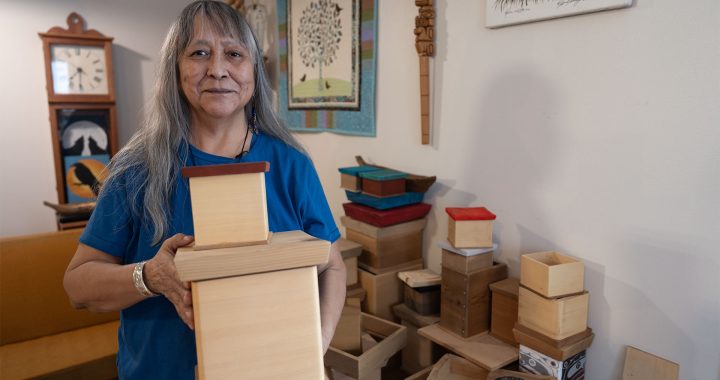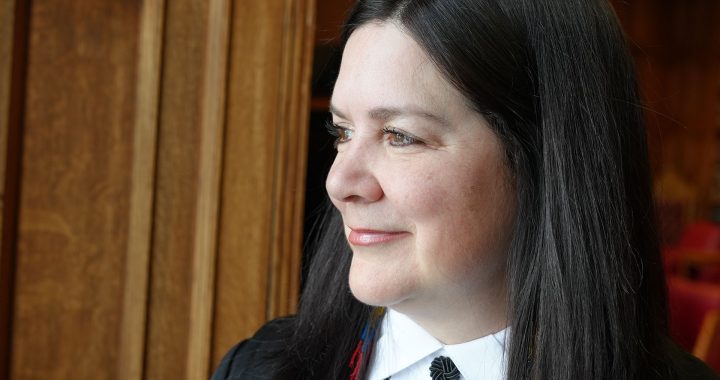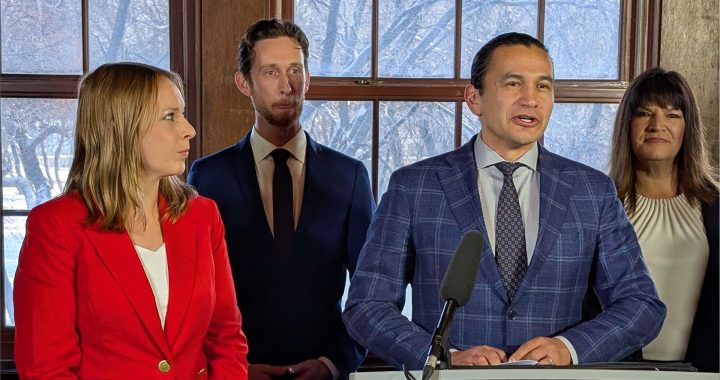Ten nations in Treaty 9 have released a draft copy of a lawsuit against Canada and Ontario they say will be filed over a faulty treaty process and lack of consultation over what happens on their territory.
The draft, which was released Wednesday, is asking the courts for $95 billion in compensation plus control over what happens on their lands including resource extraction.
The treaty was signed with the ten nations between Canada, Ontario over years starting in 1905.
Attawapiskat First Nation, Apitipi Anicinapek Nation, Aroland First Nation, Constance Lake First Nation, Eabametoong First Nation, Fort Albany First Nation, Ginoogaming First Nation, Kashechewan First Nation, Kitchenuhmaykoosib Inninuwug First Nation and Neskantaga First Nation are involved in the legal action.
According to the document, “The written text of the Treaty was prepared “at headquarters” (Ottawa and Toronto) as between Canada and Ontario without any Indigenous Signatories’ input. The Treaty Commissioners representing Canada and Ontario took the prepared written text and met with the Treaty 9 Nations in their territories.
“The Treaty Commissioners did not speak to the Treaty 9 Nations about the language, concepts or implications of the written text, including the cede, release and surrender or taking up clauses.”
Lawyers for the action say the statement of claim will be filed within 60 days.
At issue is the wording in Treaty 9 which states, in part, that the nations “cede, release, surrender and yield” their land in exchange for designated reservations and the ability to live, fish and hunt anywhere in their territory.”
The nations say the governments originally pledged “co-jurisdiction,” which was meant to include shared decision-making on the land and water within the vast territory. But they say the governments then wrote up the treaty that included the clause, which they say was never explained to them.
“Canada and Ontario have repeatedly acted as if the Treaty 9 Nations did cede and surrender all their Jurisdiction over to the Crown,” the draft statement of claim says. “The Crown governments took exclusive Jurisdiction when they knew or ought to have known that they did not have it and that the Treaty 9 Nations did not grant it away to them. They did so by duplicitous, dishonourable and often forceful means.”
The nations says they signed the treaty with the idea they would be equal partners with Ottawa and Ontario.
“We never surrendered our rights,” said Chief Sylvia Koostachin Metatawabin of Attawapiskat First Nation at the Ontario legislature in Toronto on Wednesday.
Read the statement of claim
The nations alleged the province makes unilateral decisions on mining, logging and developing parts of their territory without consultation.
“Jurisdiction centres around the power to make decisions, the power to choose, or in other words, the power to consent or withhold consent,” the statement says. “In this case, the Plaintiffs are asking this Court to find that their Treaty Rights include the right to a Way of Life which necessarily includes decision-making governance authority in respect of the Land they rely on for this way of life, which has economic, social, cultural and spiritual characteristics and purposes.”
Kate Kempton, the lawyer representing the nations, tells APTN’s Nation to Nation that this gets to the heart of the matter.
“While the Crown has to consult with First Nations, has to accommodate them, that at the end of the day if the Crown and First Nations don’t agree the Crown is the only government, basically, although it’s divided itself between federal and provincial levels it’s one Crown – they do not recognize the decision making governance authority of First Nations over the land.
“We’re not talking about reserve land, we’re talking about full traditional territories that take up all the land masses of Canada. What we are saying in this case is we’re stepping right out of that box of unilateral jurisdiction and saying that is ‘not correct, it never was.’
“Treaty 9 guarantees and promised co-jurisdiction so this is really a case about who the governments are and who makes what decisions.”
The claim says that the “harm of colonialism lies not so much that other people came and settled, or that the other people took some land and resources, but that they purported to take over, to bestow upon themselves some supreme right to rule it all.”
The Ring of Fire
Mining the so-called Ring of Fire region has become a major concern for many of the First Nations. The province has big plans to mine the area, which is said to be rich in critical minerals often used in batteries for electric vehicles.
The province recently approved the terms of reference from two First Nations for an environmental assessment for an all-season, multi-use road to the Ring of Fire. Webequie First Nation and Marten Falls First Nation – which are not part of the lawsuit – designed and submitted the now-approved plan that will link their First Nations and mining sites to Ontario’s road network.
Premier Doug Ford has previously said he’ll get a road built to the region even if he has to hop on a bulldozer himself.
Chief Mark Bell of Aroland First Nation said his community and others aren’t on board with the plan as it stands.
“We hear so much about building mines and roads and this and that, but they don’t have our community’s permission,” he said. “There’s been zero consultation on these types of projects.”
He said his First Nation is not opposed to development, the community just wants to work together with the province, as equals.
“In the past we never ceded anything, we wanted to share, we wanted to work together, we wanted to make decisions, but that hasn’t happened,” he said.
Two First Nations members in the public gallery shouted at Ford during question period Wednesday.
“No Ring of Fire,” one yelled.
“You’re not going to take our sturgeon, you’re not going to take our moose,” another bellowed.
Security escorted the pair out of the legislature.
Indigenous Affairs Minister Greg Rickford, responding to a question directed at the premier in the legislature about the Ring of Fire, said the government is trying to build consensus with First Nations.
“We’ve all gathered together to ensure that the government’s priorities are to support the priorities of the Indigenous communities in and around major resource projects,” he said.
“And that the legacy requirements to support them are really about the enhancements to those communities: new forms of energy, no to diesel, yes to clean energy supply, yes to better access to health and social programs in some of our isolated communities.” he said.
Rickford’s office said the province is “focused on building strong relationships with Indigenous partners” and would continue to prioritize consensus-building when it came to northern development.
The office for federal Crown-Indigenous Relations Minister Marc Miller wrote in a statement that the government “remains steadfast in its commitment to work alongside First Nations, to advance their vision for self-determination.”
“Canada always prefers resolving litigation outside the courts, whenever possible. However, we respect the Treaty 9 First Nations’ decision to take Canada to court, as they see fit,”
The nations in Treaty 9 say they would like a declaration that First Nations are to be consulted on every project that “threatens their way of life” and that no project would go ahead without their consent.
“For the last 120 years, the Crown governments have been unilaterally making decisions, imposing their will and their ways, unilaterally extracting resources from the lands that comprise Treaty 9,” said Kempton.
“And so we did some math and said, basically, ‘you owe about a hundred billion dollars for all the harm that you’ve done illegally in the last 120 years.”’
Treaty rights and baby eels
Harvesting baby eels has become another contested fight over exercising treaty rights
The small eels, called elvers, are sent to Asia to be grown for food. Just one kilogram of the catch can be sold for $5,000.
The Department of Fisheries and Oceans (DFO) put a stop to the lucrative catch due to reports of violence among fishers, conservation issues and alleged poaching.
Treaty rights advocate Cheryl Maloney told Nation to Nation that in the weeks leading up to the moratorium, DFO officers and RCMP failed to protect First Nations exercising a treaty right to earn a moderate livelihood.
“They could’ve policed the rivers before it got to a point of explosion,” she said.
Maloney said it reminded her of when Mi’kmaw fishers began harvesting lobster to earn a moderate livelihood in the autumn of 2020 when there were no coast guard or RCMP to stop commercial fishers from intimidating them.
“We were on the water with commercial boats circling us and you all seen the violence that happened there,” she said. “We feel the same thing has happened here (DFO) Minister (Joyce Murray) just let us go. So, they’re saying in order to keep public safety, they had to shut it down. With the Indigenous laws, you have to fulfil certain steps.”
She said constitutional rights top commercial interests.
“It should trump all conservation and corporation interests.”
Maloney doesn’t feel First Nations harvesters are poaching because when it comes to harvesting, treaty rights should come first.
“The commercial industry will have to be cut back and the last ones that would be on the water, rivers, or creating sustenance in the economy, should be the First Nations rights holders,” she said.
With files from the Canadian Press












